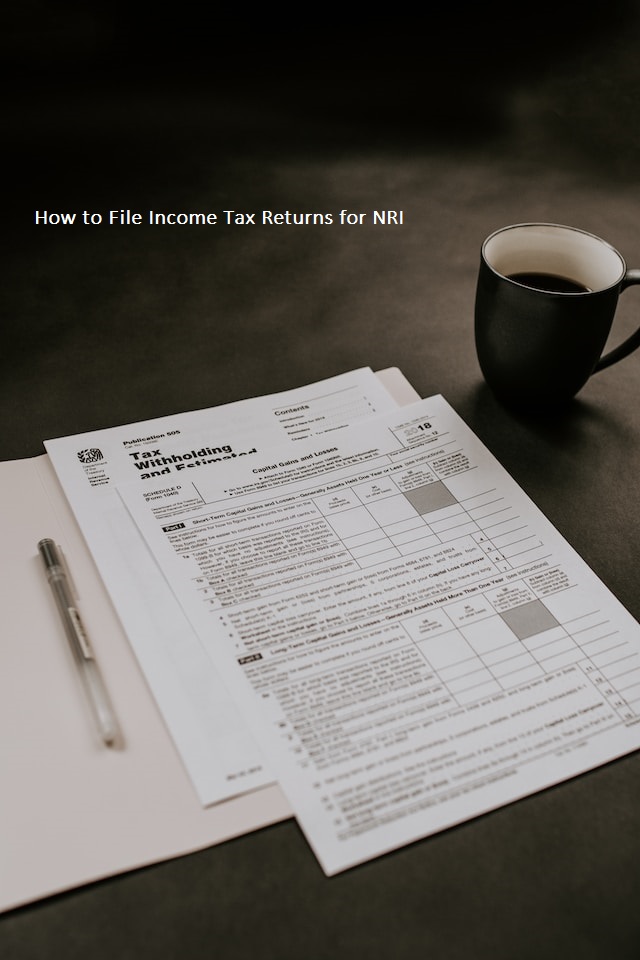You recently moved from India and are now working as an NRI at a reputable MNC. You are living the best life, making a respectable salary, and enjoying many incredible benefits.
Amid all the excitement, taxes need to be considered. It is essential to file proper income tax returns to guarantee that tax regulations are followed and to stay out of trouble. Did relocating abroad grant you a complete exemption from Indian taxes? Not exactly. Nonresident Indians are required to pay tax on their earned income and on any money received in India under the terms of the Indian tax system.
As you may already know, filing income taxes is daunting task. However, with this post, you will clear up all of your questions and uncertainties about how to submit income tax returns as an NRI.
Also Read: What is the Canara bank car loan interest rate?
1. Determine the Residential Status in India
Determining the right of residence for each financial year is crucial for filing Income Tax Returns for NRI. This is determined by applying Section 6 of the Income Tax Act 1961 to the number of days of stay.
Income tax laws allow non-resident Indians to visit or leave India for 181 days without losing their status as non-residents. Your arrival and departure dates are regarded as part of your stay in India.
2. Income and Tax Balance using Form 26AS
In the second step of the process, individuals are tasked with reconciling and comparing the TDS offset paid in their ITR or input tax paid on their tax return with the corresponding figures indicated on Form 26AS. This vital financial validation guarantees accuracy and compliance.
Taxpayers can detect inaccuracies in their tax returns by closely examining the TDS offset. This careful comparison ensures that the tax data submitted to the authorities matches the data on file, which encourages openness and compliance with tax regulations.

3. Estimate Your Taxable Income and Tax Obligation
The next step would involve determining how much taxable income you must pay back as an NRI. This could include interest on bank accounts kept in India, rent on home property, capital gains from shares owned in India, etc.
Remember that this income can be reduced by properly claiming deductions under several parts of the Income Tax Act. Next, determine your tax burden using the individual income tax slab rates.
Also Read: PNB PPF Interest Rate
4. Claim Double Taxation Treaty Relief
If your income is considered taxable in India and a foreign country, you may be eligible for a tax reduction known as the Double Taxation Avoidance Agreement. Remember that the relief is provided based on the kind of income.
It is important to remember that even in cases where the DTAA does not apply to your income, you will still be required to pay taxes in India and, if applicable, deduct the tax credit from your resident country’s liability.
5. Select ITR and File Details about Exempt Income
According to income tax regulations, non-resident Indians must file returns in ITR 2 starting with the 2017–18 financial year, except for commercial income. Indian non-residents who receive business income must file an ITR 3 income tax return. Note that NRIs can no longer file ITR 1.
Additionally, determine and declare any exempt income, such as dividends, tax-free bond interest, LTCG received on listed securities, interest on NRE / FCNR deposits, etc.
6. Disclosure of Bank Account Details
While filing a non resident Indian income tax return, all nonresident Indians must provide the details of one foreign bank account to issue a tax refund.
However, you won’t need to provide the details of your international bank account if you have an Indian bank account and are either not claiming a tax refund or are claiming one already.
Also Read: Get Aadhaar Card Customer Care Number Toll-Free – 1947
7. Provide Assets and Liabilities Details
You would have to fulfil one last need: provide information about your assets and liabilities. It is necessary for anyone making more than Rs 50 lakh to provide detailed information about their moveable and immovable assets located in India.
Income tax for NRI in India needs detailed tax filings regarding current liabilities, which guarantees a comprehensive financial evaluation, encouraging honesty and adherence.
8. ITR Verification
Finally, you must file your Income Tax Return and provide proof within 120 days. The returns are worthless as if they were never submitted without verification.
You can e-verify using Indian net banking and physically verify by sending a signed ITR V to the Income-tax CPC. This crucial stage establishes the validity of the tax filing procedure, highlighting how essential prompt and precise verification is to tax compliance.
Final thoughts
Paying income taxes as an NRI necessitates paying close attention to Indian tax laws. Filing Income Tax Returns on time fulfils a legal obligation and helps individuals track their financial progress. You can handle the procedure well if you know your revenue sources, deductions, and compliance needs. To ensure you meet your tax obligations effectively and adhere to Indian tax rules, you can streamline the filing process by seeking professional help or using reputable internet platforms.
Also Read: A Complete Guide on Investment banking companies in India
FAQs
1. When is the deadline for submitting an NRI’s income tax return?
The current financial year’s July 31st is the deadline for filing an NRI income tax return.
2. Do NRIs have to pay advance taxes?
If an NRI’s tax obligations in a given financial year exceed ₹10,000, they must pay advance tax. If persons fail to pay the advance tax, they will be subject to pay as per Sections 234B and 234C.
3. Can NRIs revise their tax returns if there are errors?
Yes! If NRIs find any mistakes or omissions in their initial filing, they can alter their tax returns within a specified time frame.
4. Are NRIs able to file tax returns for more than one nation?
Yes! Depending on the tax regulations of both countries, NRIs may be required to file tax returns in both India and their home country. Agreements to avoid double taxation may be applicable.
5. Are there any exemptions or deductions available to NRIs?
Yes! Under the Income Tax Act, NRIs are eligible for several exclusions and deductions, including Section 10(14) for allowances and Section 80C for investments.
More Articles: Which Bank Is Best For Demat Account
What Is a Good Credit Score in India
10 Top FinTech Companies In India 2022
Reach your financial Goals with financial management
Hello there, my name is Phulutu, and I am the Head Content Developer at Nivesh Karlo. I have 13 years of experience working in fintech companies. I have worked as a freelance writer. I love writing about personal finance, investments, mutual funds, and stocks. All the articles I write are based on thorough research and analysis. However, it is highly recommended to note that neither Nivesh Karlo nor I recommend any investment without proper research, and to read all the documents carefully.






Leave a Reply